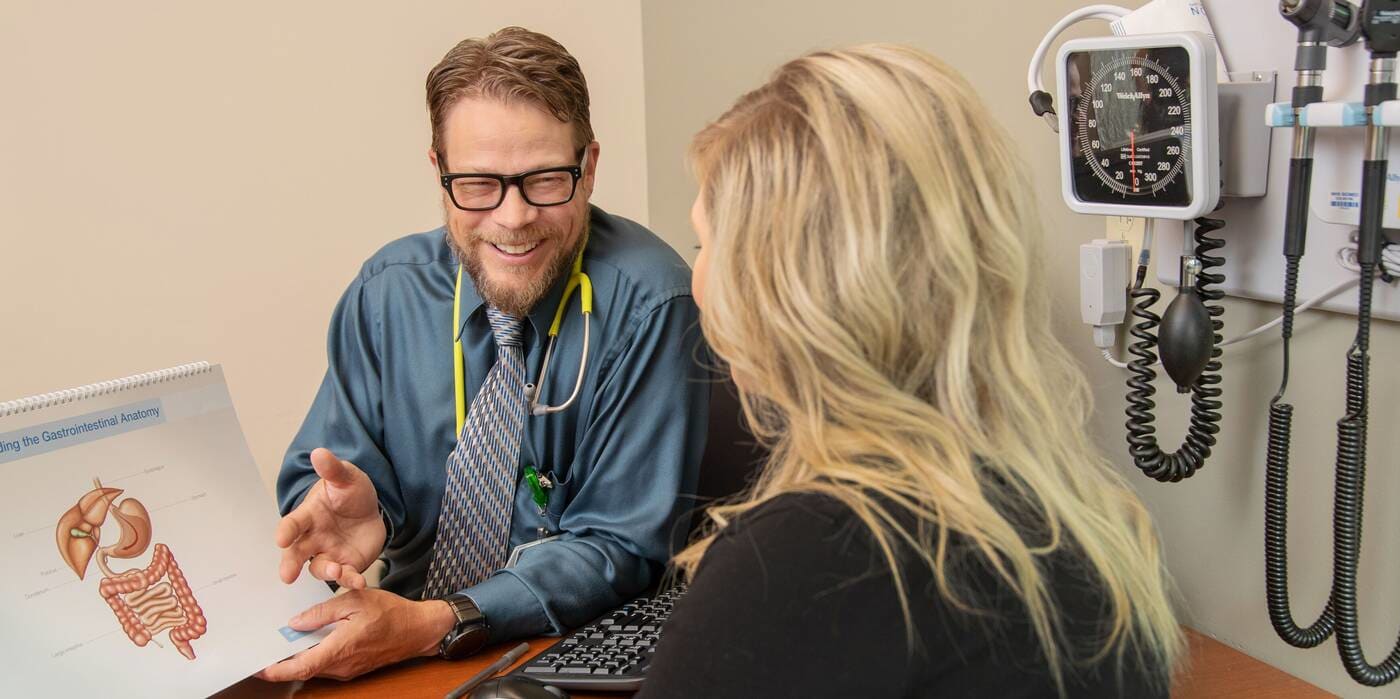Just as everyone’s weight-loss goals are different, the paths taken to achieve those goals are different, too. Bariatric surgery is one option. But what if you aren’t interested in surgery or surgery isn’t an option for you? You’ve tried the latest diet trends and incorporating some exercise into your routine, but the weight remains. What else is there? Board-certified Bariatrician Jeffrey Hooper, MD, and a team of registered dietitians with the MultiCare Center for Weight Loss & Wellness answer this and other frequently asked questions about medical weight loss and how you can get healthy and change your life without surgery.
Q: Bariatric surgery isn’t for me. I’ve tried dieting and exercise and they haven’t worked. What other options do I have?
We’ve all been there. Weight loss is hard. And keeping the weight off is often harder than losing the weight to begin with. If surgery isn’t an option and diet and exercise alone haven’t worked, medical weight loss may be a good choice. The MultiCare Center for Weight Loss & Wellness offers a comprehensive and holistic approach to non-surgical weight loss that can help you make lasting changes. Our program is unique in that you won’t just meet with a dietitian and head home with a list of foods to avoid or meal replacement shakes. Over the course of the medical weight-loss program you’ll interact with our entire weight-loss team—board-certified bariatricians, registered dietitians and behavioral health specialists—to uncover the key medical and behavioral factors blocking your ability to lose weight. This multidisciplinary team will work with you to create a personalized plan aimed at helping you not only lose weight but get healthy, both mentally and physically.
Q: I get conflicting information on what I “should” weigh from different doctors. Is it realistic to get to a BMI of 20-25 without surgery?
It is absolutely realistic to get to a healthy weight without surgery. In fact, if you are willing to make the changes your weight-loss team recommends—and stick to them—it’s almost guaranteed. Medical weight loss is not a quick fix. You may not shed the weight as fast as you’d like or as some commercial products promise. Instead, you’ll lose weight in a healthy way that will be sustainable.
While lifestyle change is always where we start, we know that’s not always going to get you where you need to be. If that’s the case, we have other options available, from medications to short-term restrictive diets, to help you get past the obstacles in your way. But our primary focus will always be on empowering you to be healthy for the long-term.
But let’s talk about Body Mass Index (BMI) and why we don’t rely on it. It’s an easy, quick way to measure weight. But it’s not the best method. BMI doesn’t consider things like bone structure, body shape or muscle mass. At MultiCare, we prefer to use Bioelectrical Impedance Analysis, or BIA, a method of assessing body composition using the measurement of body fat in relation to lean body mass. Research has shown that body composition is directly related to health. So, don’t worry about those BMI charts too much. Instead, focus on your overall health.
Q: I have never followed an exercise program, and I’m too busy to cook healthy meals consistently. How will I learn to manage and maintain my weight on my own?
We understand you are busy. But just because you don’t have an hour to go to the gym every day doesn’t mean you can’t find ways to be active. Our team can help you find those opportunities, whether it’s taking a quick walk at lunch or squeezing in a 15-minute workout during your day. And we’ll work with you to find ways to incorporate meal prep and healthy choices into your busy lifestyle as well. Often, once you’ve started making changes, you will find you have more energy and it gets easier. The first, most important step is choosing to prioritize yourself and your health. Once you have made a commitment to changing your lifestyle, the Center for Weight Loss & Wellness team can help you find ways to make small changes that will have a big impact.
Q: What if I start to regain the weight after the program ends?
While most of our patients are successful at keeping their weight in check after transitioning out of the medical weight-loss program, we know that life throws us curveballs every once in a while. That’s why you are always welcome to come back and meet with your dietitian or other members of the team as needed to get back on course. Our program is customized for each person and is flexible in order to meet individual goals. Obesity is considered a chronic health condition, much like diabetes or hypertension. With this in mind, the visit frequency and duration of treatment are based on individual needs. Your progress will be reviewed and celebrated along the way. Our providers partner with you to determine if key milestones are achieved and when it makes sense for you to transition out of the program.
Q: Will my insurance cover the cost of a medical weight-loss program?
Many insurance providers will cover medical weight loss. If you aren’t sure, give us a call and we can help you determine your coverage and if you will need a referral. If your insurance does not cover medical weight loss, we have self-payment options that are affordable and comparable to other weight-loss programs and plans. The important thing to remember is that you are making an investment in your health, and your future.
Q: I’m ready to reclaim my health. How do I get started?
It is easy to get started in our medical weight-loss program. Give us a call at 253-301-5280 (toll free at 844-256-7659) or complete our consultation request form to schedule a consultation with one of our board-certified surgeons. Unlike surgery, there are no pre-qualifications to get started. You just need to want to make healthy changes in your life. We’ll help you do the rest.





